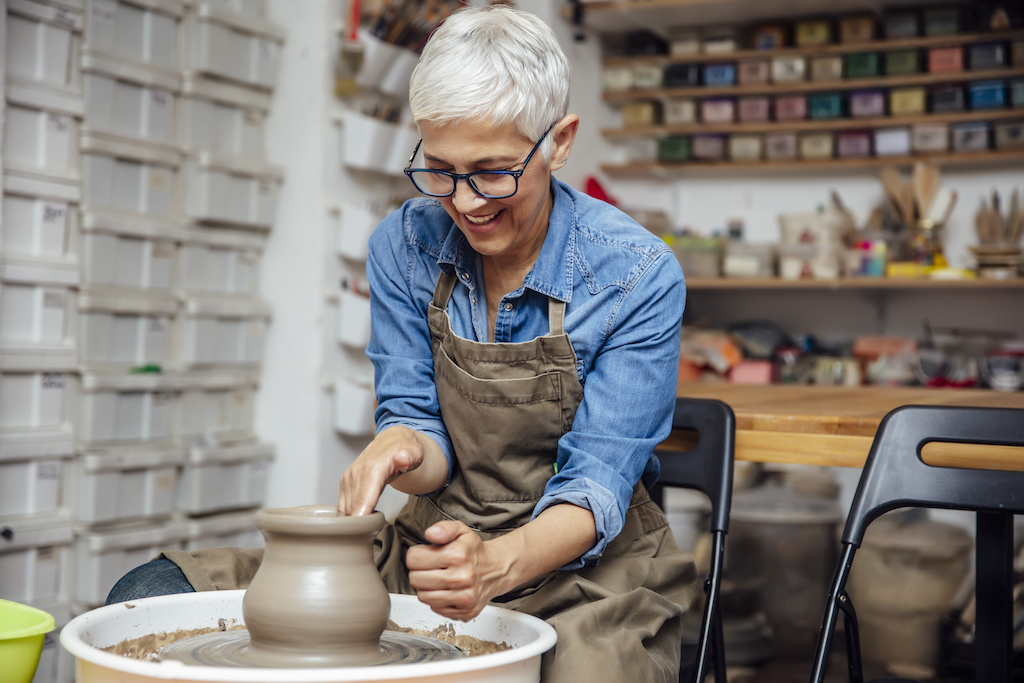Guest Post by Dr. Chris Reynolds
Dean and Vice President, Academic Outreach and Program Development, APUS
Dr. Chris Reynolds has been a long-time faculty member, program director, dean, and vice president at APUS. His contributions to the university have been many, as have his contributions to his community as a Division Chief in the Hillsborough County, Florida Fire Department and to his country as a Lt. Col. in the Air Force Reserve. His words about hobbies are typical of Chris: encouraging and inspirational. I hope you get the hobby bug!
What do classic cars have to do with higher education? Well, after reading this blog article, I hope that you will come to the conclusion they have everything to do with higher education. We all have hobbies. Some people like to ski, go boating, or hike trails. Others hunt, fish, or do crafts.
My escape has always been tinkering with classic cars. Hobbies allow us to momentarily escape the mundane or routine and share one’s passion for the hobby with other enthusiasts. Hobbies generally attract a wide array of people who cross all socioeconomic lines. After all, it is the love of the hobby that keeps us coming back. There is something about turning wrenches, adjusting a carburetor, or tuning an engine that brings satisfaction. Working with one’s hands and getting them dirty is cathartic!
There is quite a bit of data that points to the health benefits of hobbies. In the January 2020 edition of Inside Higher Education, doctoral student Jordan McNeill published a wonderful article, “Get a Hobby!” He emphasized the importance of maintaining a work-life balance in graduate school, citing hobbies as one way to help maintain this balance. Hobbies allow one to have a “mental rest period” from the realities of career, family, and school.
Participating in hobbies and other social and leisure pursuits may lower risk for developing some health problems, including dementia. – U.S. Department of Health and Human Services
There are more tangible health benefits from our hobbies. According to the U.S. Department of Health and Human Services, “Participating in hobbies and other social and leisure pursuits may lower risk for developing some health problems, including dementia.” Hobbies relieve stress, as they allow you to focus on an enjoyable task, instead of a necessary task. Hobbies help improve one’s self-confidence by building mastery in your given hobby, which also helps boost self-esteem. Hobbies can help lower one’s blood pressure and stimulate the brain to release endorphins, which are the “feel-good” hormones that make you happy.
Some hobbies – like running, hiking, biking, or skiing – all add a cardio component, which also increases one’s stamina and heart health. In fact, the National Council on Aging offers a guide touting the importance of exercise in cold weather.
Other hobbies, like puzzles, art, reading, and journaling, stimulate the brain to improve memory or recall. Hobbies gives one a purpose to be creative, social, productive, and artistic! Increasing your emotional well-being through hobbies can help you better manage stress, by balancing work, family, school, and other competing activities. Hobbies actually help one find a healthy balance, which includes both physical and mental health. In today’s social media-crazy world, it is good to have something that doesn’t involve a smartphone!
I have two hobbies that I love. First are my classic cars, which allow me to spend quality time with my fellow classic car enthusiasts at car shows or cross-county cruises. My other hobby is working with clay. I recently had three of my pieces entered into the Florida State Fair. My advice to colleagues is to have a hobby. Do something that you enjoy that does not involve work. Remember, we all must maintain a healthy work-life balance if we are to be truly effective.











